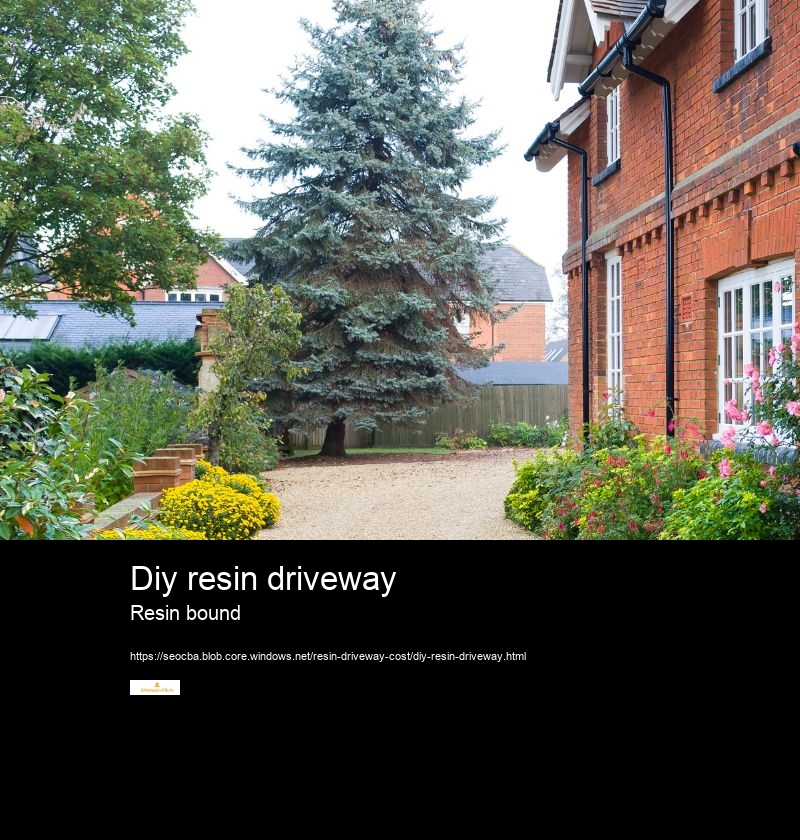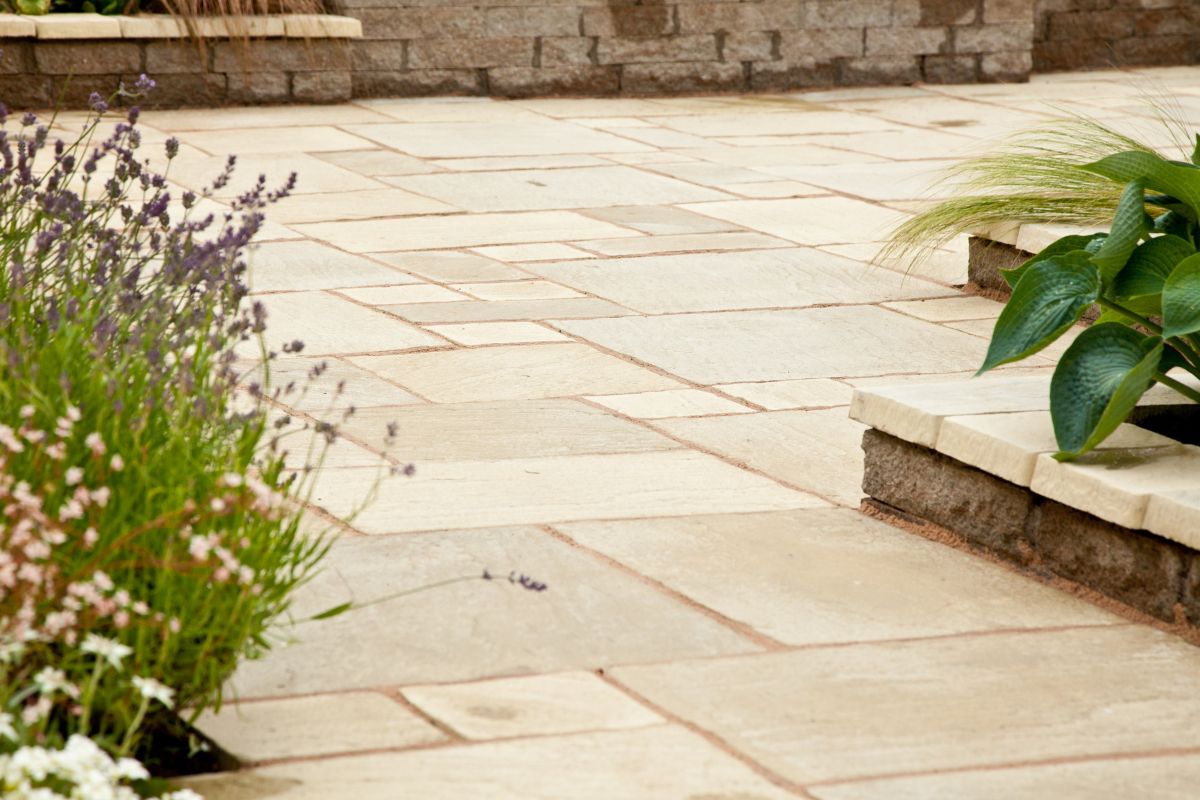Diy resin driveway
How much does it generally cost to have a resin driveway installed?
This prevents debris from scratching or damaging the resin surface during the cleaning process. Next, prepare a mild soapy solution using a gentle detergent mixed with water. Apply the soapy solution to the surface and scrub using a soft-bristle brush or a deck brush. This helps to remove dirt, stains, or algae growth.
Avoid using harsh chemicals, bleach, or abrasive cleaners, as they can damage the resin. Once you have scrubbed the surface, thoroughly rinse the driveway with clean water using a garden hose or a pressure washer on a low setting.
This ensures that all the soap residue is removed. It's important to avoid excessive pressure when using a pressure washer, as it can dislodge the resin or damage the surface. Finally, allow the driveway to air dry. Regular cleaning and maintenance will help keep your resin driveway looking its best and prolong its lifespan.
Cost for Resin Driveway:
The cost of a resin driveway can vary depending on various factors, including the size of the area, the complexity of the installation, the choice of materials, and your location. On average, the cost of a resin driveway installation ranges from £40 to £100 per square meter in the UK. It's important to note that this is just a general estimate, and prices can vary significantly based on individual circumstances.

How much does it generally cost to have a resin driveway installed?
Additional factors that can affect the cost include the condition of the existing base, any necessary groundwork or excavation, the type and quality of resin and aggregates used, any added features or customization, and the contractor's pricing structure. Obtaining multiple quotes from reputable contractors is recommended to get a better understanding of the cost for your specific project. It's crucial to prioritize quality and choose an experienced professional to ensure a well-installed resin driveway that meets your expectations.
While cost is an important consideration, it's also essential to consider the long-term value, durability, and aesthetic appeal that a resin driveway can provide.
Cracks in Resin Driveway:
Although resin driveways are known for their durability, they can develop cracks over time due to various factors such as ground movement, temperature changes, or heavy loads. Cracks in a resin driveway can be a concern as they can affect the appearance, structural integrity, and performance of the surface.
Prompt action is important to prevent further damage and deterioration. For minor cracks, there are resin repair kits available that can be used to fill and seal the cracks. These kits typically include a resin mixture that can be applied to the crack, ensuring a seamless repair. However, for more extensive or significant cracks, it is recommended to seek professional assistance. A resin driveway repair specialist can assess the damage, determine the underlying cause of the cracks, and provide appropriate solutions.
What is the recommended method to clean a resin driveway?
This may involve removing the affected area, repairing the base if necessary, and applying a new resin layer. It's important to address cracks in a resin driveway promptly to prevent water infiltration, further damage, and potential tripping hazards. Regular maintenance, including inspecting for cracks and addressing them promptly, can help maintain the overall condition and longevity of your resin driveway.
Dark Grey Resin Driveway:
A dark grey resin driveway refers to a resin driveway surface that utilizes dark grey-colored resin and aggregates. Dark grey is a popular choice for those seeking a modern and sophisticated look for their driveway. The dark grey color adds a contemporary touch and creates a sleek appearance that can complement various architectural styles.
Dark grey resin driveways offer several benefits, including durability, low maintenance requirements, and longevity. They are resistant to cracking, fading, and UV damage. The smooth and even surface of a resin driveway provides a comfortable driving and walking experience. Dark grey is also known to be effective in hiding dirt, dust, and tire marks, helping the driveway to maintain a cleaner appearance over time.
It's important to note that regular cleaning and maintenance are still necessary to keep the dark grey resin driveway looking its best. Overall, a dark grey resin driveway can enhance the curb appeal of your property, create a welcoming entrance, and add a touch of elegance to your home.

Are grey resin driveways popular?
Dark Resin Driveway:
A dark resin driveway refers to a driveway surface that utilizes a dark-colored resin. This can include shades of black, dark gray, or other deep tones. Dark resin driveways offer a sleek and sophisticated aesthetic, creating a striking contrast against the surrounding environment. The dark color adds a touch of elegance and can complement various architectural styles. In addition to its visual appeal, dark resin driveways possess the same advantages as other resin driveways. They are durable, resistant to cracking, and require minimal maintenance. The smooth surface provides a comfortable driving and walking experience, while the resin's permeability allows for efficient drainage of water. It's worth noting that dark resin surfaces may show dust or debris more visibly compared to lighter-colored driveways. Regular cleaning and maintenance, such as sweeping or gentle washing, can help keep the dark resin driveway looking its best. Overall, a dark resin driveway can enhance the curb appeal of your property and create a welcoming entrance that leaves a lasting impression.
Depth of Resin Driveway:
The depth of a resin driveway refers to the thickness of the resin layer applied during installation. The depth can vary depending on factors such as the existing base, the intended use of the driveway, and the specific requirements of the project.
On average, the resin layer for a resin-bound driveway is around 15-18mm, while a resin-bonded driveway typically has a thinner layer of around 3-6mm. These depths ensure a strong and durable surface while maintaining the desired aesthetic. However, it's important to note that the depth of the resin layer may differ based on specific circumstances and requirements.
What is a bonded resin driveway?
Consulting with a professional contractor is advisable to determine the appropriate depth for your resin driveway. Proper preparation of the base, including sufficient compaction and leveling, is crucial to ensure the structural integrity of the driveway. A well-installed resin driveway with the appropriate depth provides a long-lasting, low-maintenance surface that enhances the overall appearance and functionality of your property.
Disadvantages of Resin Driveways:
While resin driveways offer numerous advantages, it's important to consider potential disadvantages as well. One disadvantage is the initial cost of installation. Resin driveways can be relatively more expensive compared to other driveway options, such as concrete or asphalt. The cost can vary depending on factors such as the size of the area, the complexity of the installation, and the choice of materials.
Another consideration is that resin driveways may require professional installation. The process involves specific techniques and equipment to ensure a proper and durable result. Additionally, resin driveways may be susceptible to damage from heavy loads or sharp objects.
Although they are generally durable, resin surfaces can be prone to scratches, chips, or cracks under certain conditions. However, it's worth noting that minor damages can often be repaired. Lastly, resin driveways may require periodic maintenance, such as resealing or reapplication of a topcoat, to maintain their appearance and performance.
Can you tell me about stone resin driveways?
Considering these factors and consulting with a professional can help you make an informed decision about whether a resin driveway is the right choice for your specific needs and budget.
Disadvantages of Resin Driveways:
Resin driveways offer numerous benefits, but it's important to consider potential disadvantages as well. One disadvantage is that resin driveways can be more susceptible to damage from heavy vehicles or sharp objects compared to harder surfaces like concrete or asphalt. While resin is durable, it may not be as resistant to impact or abrasion.
Additionally, resin driveways can be sensitive to extreme temperatures. In very hot conditions, the resin can soften, which may lead to indentation or distortion if heavy objects are placed on the surface. In cold temperatures, resin can become more brittle, potentially increasing the risk of cracking under pressure. It's important to choose a high-quality resin and ensure proper installation to minimize these risks.
Another consideration is that resin driveways may require occasional maintenance or resealing to maintain their appearance and performance. This can involve applying a fresh topcoat or resealing the surface to enhance its durability and protect it from UV damage. Finally, the initial cost of installing a resin driveway may be higher compared to other materials.
Diy resin drivewayWhere can I find resin driveways near me?
However, it's important to weigh the long-term benefits and durability of a resin driveway against the initial investment. By understanding the potential disadvantages and taking appropriate measures to mitigate them, you can make an informed decision about whether a resin driveway is the right choice for your specific needs and circumstances.
Do it Yourself Resin Driveway:
Installing a resin driveway as a do-it-yourself (DIY) project is possible, but it requires careful planning, preparation, and attention to detail. DIY resin driveway kits are available, which typically include the necessary materials and instructions to complete the installation.
However, it's important to consider several factors before deciding to proceed with a DIY resin driveway. Firstly, proper ground preparation is crucial to ensure a stable and durable base. This involves excavating and leveling the area, ensuring proper drainage, and compacting the base material.
Additionally, working with resin requires precise mixing and application techniques to achieve a smooth and even surface. Without the appropriate tools and experience, it can be challenging to achieve professional results.
How does the size and condition of my existing driveway affect the cost of installing a resin driveway?
The size, shape, and condition of your existing driveway play a significant role in the overall cost. If your base is old or damaged, it may require extensive groundworks or the installation of a new concrete or tarmac base, which increases costs. Additionally, larger driveways with intricate curves or borders may require more preparation work and materials compared to smaller, simpler spaces.
Why is UV protection an important cost factor in resin driveway installation?
UV protection is an important consideration for resin driveways. UV stable resins are more expensive but offer benefits such as preventing discoloration and deterioration caused by prolonged sun exposure. Investing in a higher-quality UV stable resin ensures long-lasting durability and maintains the aesthetic appeal of your driveway over time, making it a worthwhile investment despite the slightly higher initial cost.